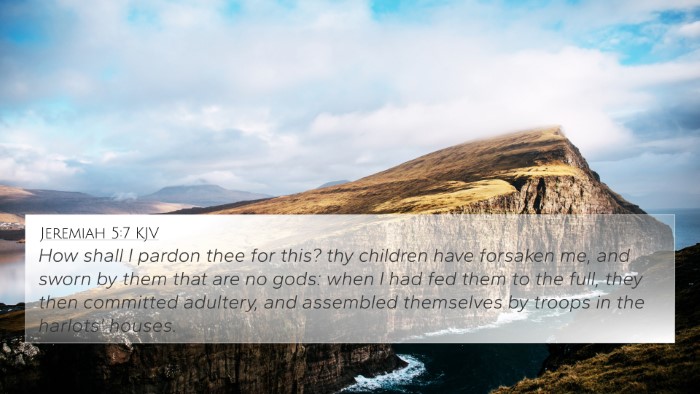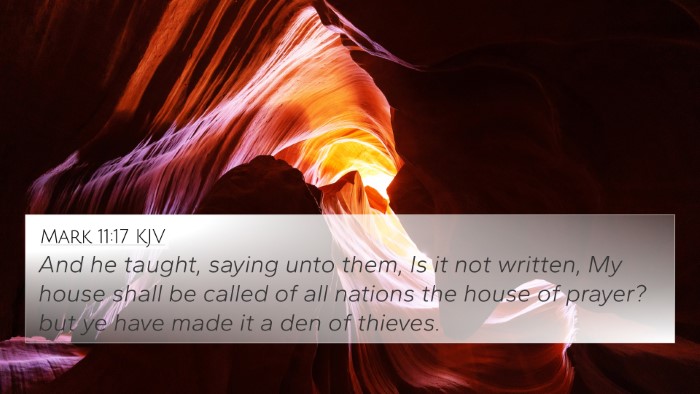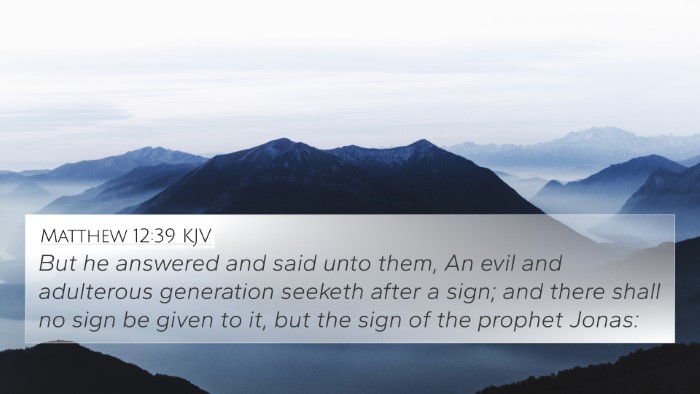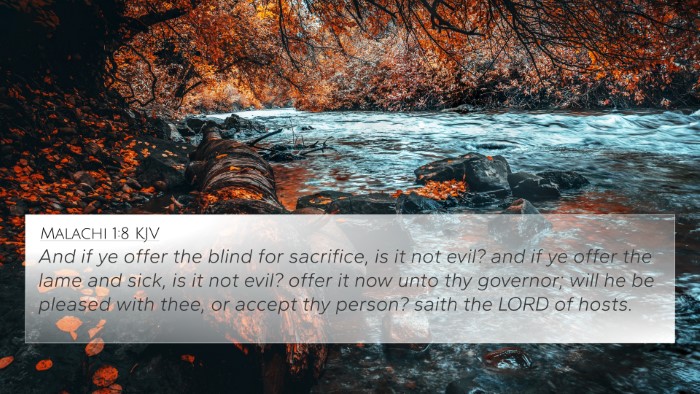Understanding Romans 2:22
Verse: Romans 2:22 - "Thou that sayest a man should not commit adultery, dost thou commit adultery? thou that abhorrest idols, dost thou commit sacrilege?"
Summary and Interpretation
Romans 2:22 presents a rhetorical challenge by the Apostle Paul, who is addressing the hypocrisy of those who profess to uphold moral laws while failing to observe them themselves. This verse is part of a larger discourse on judgment and moral accountability. Here, Paul confronts the Jewish audience's reliance on the Law and their tendency to judge others without adhering to the same standards.
Commentary Insights
-
Matthew Henry:
Henry emphasizes the theme of hypocrisy within religious practices. He notes that the Jews prided themselves on their adherence to the Law and condemned others for committing sins they themselves engaged in. This self-contradiction serves to highlight the universal need for repentance and underscores that mere knowledge of the Law does not equate to obedience.
-
Albert Barnes:
Barnes focuses on the moral implication of the verse. He points out that Paul is illustrating the inconsistency in the behavior of those who teach others not to sin, yet engage in those very sins themselves. Barnes remarks that this principle applies universally, stressing that God looks for behavior that reflects one’s teachings, emphasizing the importance of living out one’s convictions.
-
Adam Clarke:
Clarke highlights the pervasiveness of sin and idolatry. He remarks on the importance of self-examination and warns against the dangers of judging others while failing to acknowledge personal sin. Clarke draws connections to the broader biblical themes of accountability and the necessity of aligning one’s actions with one’s beliefs about God's commandments.
Thematic Connections
This verse invites a deeper understanding of biblical themes such as judgment, hypocrisy, and moral integrity. By examining Romans 2:22, we can draw parallels and cross-references to other scripture passages that explore similar themes:
- Matthew 7:1-5: Jesus instructs against judging others, urging self-reflection before correcting another.
- James 4:11-12: James warns against slandering fellow believers, stressing God's role as the ultimate judge.
- Luke 6:41-42: Similar to Matthew, this passage challenges individuals to address their own faults before pointing out those in others.
- Galatians 6:1: Paul urges believers to restore others gently, bearing in mind their own susceptibility to sin.
- 1 John 1:8-10: Acknowledgment of sin is critical for believers, as claiming to be without sin is self-deception.
- Romans 14:10: Paul reminds us that we will all stand before the judgment seat of Christ, emphasizing accountability.
- Proverbs 28:13: Highlights the importance of confessing one’s sins and finding mercy, linking personal acknowledgment with divine forgiveness.
Cross-Referencing Insights
Cross-referencing Romans 2:22 with these biblical texts provides a comprehensive study of the themes of accountability and hypocrisy within scripture. By understanding these connections, one can engage in deeper Bible study, utilizing tools that facilitate cross-referencing and thematic exploration.
Tools for Bible Cross-Referencing
To further enhance your study of these themes, consider the following resources that assist in finding and understanding cross-references:
- Bible Concordance: A comprehensive list of keywords and references to find specific verses.
- Bible Cross-Reference Guide: A guide that shows connections between related scriptures.
- Cross-Reference Bible Study: Methods to explore interconnected verses and themes.
- Bible Chain References: A technique for following a theme through various scripture passages.
Conclusion
Romans 2:22 serves as a profound reminder of the need for personal integrity and self-awareness in one’s faith journey. As believers, understanding the connections between scripture passages and applying them to our lives fosters a deeper relationship with God and enriches our understanding of His Word. In the context of cross-referencing Biblical texts, this verse not only emphasizes accountability but also encourages believers to demonstrate the truth of their faith through righteous living.
Keywords for Further Study
This exploration of Romans 2:22 connects significantly to various themes, allowing for further investigations into the following keywords:
- Bible verse cross-references
- Connections between Bible verses
- Linking Bible scriptures
- Comparative Bible verse analysis
- Bible verses that relate to each other
- Cross-referencing Biblical texts
- Thematic Bible verse connections
- Bible verse parallels
- Inter-Biblical dialogue














